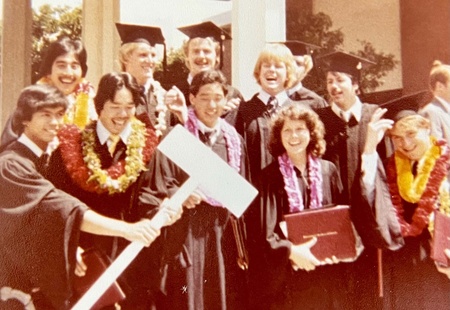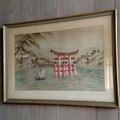Years ago, a management headhunter called me about a job opening at a small but prestigious journal. I was excited about the prospect of working for that organization until I heard the exact position: publisher. In my career as a writer and editor, the highest managerial job I had had was that of executive editor, which was two levels below that of publisher. (As executive editor, I reported to the editor-in-chief, who reported to the publisher.) I told the headhunter that I wasn’t qualified for the position, but she encouraged me to apply anyway. “Sometimes it’s good to stretch yourself,” she advised. But I just couldn’t conceive of myself ever taking a job that I didn’t feel confident doing, so I declined to pursue that opening.
Throughout my professional career, my motto has always been, “Under promise and overdeliver.” Whenever my editors would ask how much time I’d need for a story, I’d say four days if I felt sure I could do it in three. And I made darn sure that, even if some unexpected problems would arise, I would make that deadline, come hell or high water. This often meant working long hours but I quickly became used to that. In fact, the only time that I ever missed a deadline was when my brother on Oahu died, and I had to fly from Boston to Hawaii.
My work ethic definitely comes from my Nisei parents. To them, laziness was a severe character flaw and, from the earliest age, my brothers and I were expected to study hard and do our best in school. If I had trouble with anything, that only meant that I needed to put more effort into it. At the same time, we were also taught to always be modest, never bragging or touting our skills. After all, failing at something would be bad enough; failing at it when you’ve been arrogant would only double the embarrassment—and the shame.
In the U.S., a popular maxim for succeeding is “Fake it till you make it,” which runs completely counter to how my brothers and I were raised. Instead, our parents insisted that we take a different approach: “Work hard to make it, and never fake it.” Looking back at my childhood, I’m thankful for my parents for instilling in me that no-nonsense, “nose to the grindstone” approach to life.
Yet there was also a definite downside to my upbringing, namely, my unhealthy fear of failure. I used to think that this was something that was specific to how my parents raised my brothers and me, but then I read fellow Sansei Shirley Ann Higuchi’s excellent book Setsuko’s Secret. In it, she coins the term “the Sansei effect” and defines it in the following way: “the condition in which my generation of Japanese Americans strives to achieve perfection while knowing it is not possible.” In other words, we might be unknowingly setting ourselves up for failure, but that doesn’t stop us from striving even harder. As Higuchi describes it, we Sansei are fueled by “the drive to be better than everyone else, predicated always on the fear that someone would tell you that you were not supposed to be here.”
So, what’s at the root of this fear of failure? For me, it’s the ever-present anxiety that I may one day fall far short of the expectations of others, and when that happens I will bring shame through the front door of my family home.
Consequently, I worked hard to excel in my studies and, if anything, I probably overachieved in school, punching above my natural weight. I joke with friends that, as an undergraduate engineering major at the University of Southern California, I was the co-valedictorian of the class of 1981, even though I had little interest in actually becoming an engineer. Indeed, fear can be a powerful motivator, and overall, I’m grateful for the way that I was raised, yet I cannot help but wonder what my life might have been like had it instead been governed by other forces.
Decades ago, when I was a freshman at USC, I somehow ended up in a dorm with students of extraordinary means. The father of one guy on my floor was a senior executive vice president at the corporate headquarters of Bank of America. My other dormmates had fathers who owned medium- to large-sized companies, and when I would be riding around campus on my second-hand bike, other students driving in their new BMWs and Mercedes Benzes would whiz by me. There I was, a scholarship student from a blue-collar Asian American family studying among classmates from families of considerable privilege.
I envied these classmates of mine, but it wasn’t necessarily because of the material things they possessed. Instead, I longed to have their easy confidence that was, at least on the surface, so much a part of who they were. Their sense of self seemed anchored to a fundamental belief that everything would eventually work out well for them, even if they skipped classes and made only half-hearted attempts at doing their schoolwork. One of my friends would actually be delighted when he’d receive a “C” for any class because that meant he didn’t need to retake it.
I found that carefree mentality to be totally foreign. As a Sansei and scholarship student, I felt that I had no margin for error. If I didn’t maintain a high grade point average, I would lose my scholarship, something I could not allow to happen. But during my first year at USC, I was so homesick for my family and friends in Honolulu that I had trouble concentrating on my schoolwork.
I can vividly remember the mid-term exam for my freshman chemistry class, in which I bungled a key formula, resulting in my first “B” after the unbroken string of “A”s that I had earned in high school. That grade scared the bejesus out of me, snapping me from wallowing in my homesickness. From that point on, I stayed on top of my studies because failure simply wasn’t an option.

Such an attitude might have been beneficial in college, but it also handicapped me later in my career. The problem was that I was always wary of taking on any project that I wasn’t sure that I could do. As such, I tended to grow incrementally whereas others who would boldly volunteer for “stretch assignments” would advance faster, passing me up the career ladder. (Many of those individuals were also enthusiastic tooters of their own horns, something that I was never comfortable doing, but perhaps that is a topic for another essay.) How I longed to be like my former college dormmates who seemed to have the attitude of, “I’ll try this and, if it doesn’t work, I’ll just pivot to something else.” I didn’t feel that I had that luxury; I had to succeed at whatever I did.
I attribute part of that mindset to the “model minority” mentality, which has been widespread among so many Japanese Americans, including my parents and, by extension, my brothers and me. The looming fear was that, if I failed horribly at something, not only would it reflect badly on me and my family; it would also tarnish how others viewed the Japanese American community as a whole.
In athletics, a popular belief is that true champions play to win, whereas the also-rans tend to be those who play not to lose. It’s a huge difference, separating the proverbial wheat from the chaff. Ironically, my Sansei conservative attitude of playing not to lose runs in stark contrast to the gutsy Nisei veteran motto of “Go for Broke,” which helped propel the 100th/442nd Regimental Combat Team to incredible heights of bravery during World War II, becoming the mostly highly decorated unit of its size.
Now, as I enter my elderly years, I can’t help but look back at my life with some degree of wistfulness. I’ve heard it said that our greatest regrets do not necessarily arise from those times when we try something and fail; it’s when we let fear prevent us from moving beyond our comfort zones. Although this has often been true in my own life, I am heartened by the Yonsei and Gosei generations, who seem far less encumbered by the fear of failure that has in the past constrained me and other Sanseis. Yet perhaps that’s all part of a natural progression, with each generation paving the way for the next, allowing greater freedoms and increased opportunities.
Oh, as for that prestigious journal that had an opening for a new publisher, I later applied for a senior editor job there and was hired. This was a safe, lateral move for me but, to my dismay, I soon learned that the person who had been hired to be publisher was utterly unqualified. My own boss, the editor-in-chief of the publication, struggled to manage the publisher’s incompetence and would frequently need to counteract her various wrong-headed initiatives. Frustrated, he ended up leaving, and eventually so did I.
This was a hard lesson for me because, as lacking as I might have been had I applied for and gotten the job as publisher, I feel reasonably confident that I would have been markedly better than she was. But that, unfortunately, is something that I’ll never know for sure.
© 2023 Alden M. Hayashi





